Noticing your pet shedding pounds can be concerning. Weight loss in cats can be due to numerous reasons, varying from age, and underlying medical conditions, to environmental changes. Learning how to help your cat to gain weight effectively is crucial in these situations to ensure their health and well-being.
Understanding the cause is key in helping your feline friend regain weight. This guide, in collaboration with your veterinarian, will provide invaluable insights into the cat's health.
Overview Of The Causes Of Weight Loss In Cats
Just as our felines can grow overweight, they can also become underweight under certain circumstances. It can be worrying when your cat seems to be dropping pounds in rapid succession. And rightfully so.
Cats can lose weight for a lot of reasons, some of which are age-dependent. Senior cats, for example, naturally lose muscle mass as they grow closer to becoming geriatric.
Feral cats are particularly vulnerable to parasites that may leech off of their bodies and force weight loss. Your pampered house cat may have an undiagnosed ailment like kidney disease or oral health problems that are facilitating rapid weight loss.
Yes, the reasons for weight loss in cats are many. But with the assistance of this guide and your veterinarian’s professional opinion, you can get your feline friend back on track and back to a healthy weight.
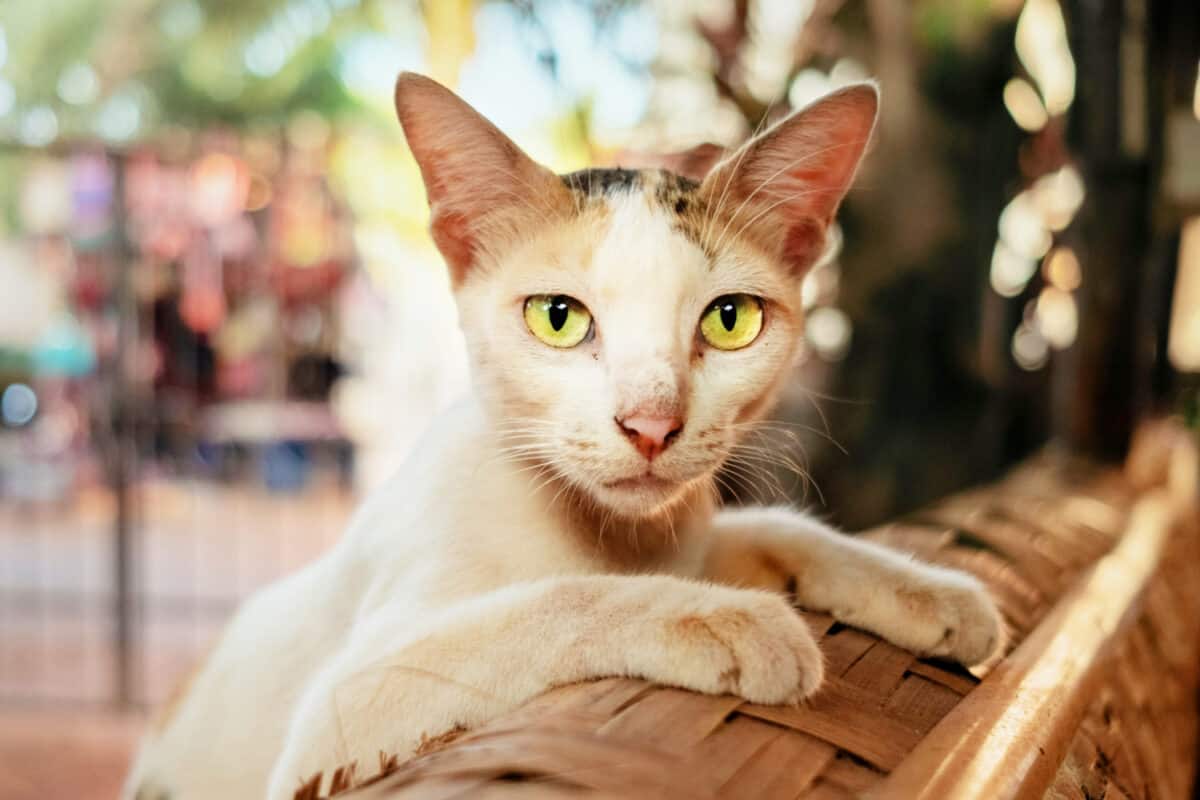
Understanding Cat's Weight Loss: Is It Really A Problem?
Sometimes cats are simply slender. While they might look and feel “too thin” to their owners, they might be perfectly healthy.
If the cat has always been thin, keeps a stable weight, and is showing no other symptoms, there may be no reason for concern. However, if you don't know the cat's history, or you're just worried about it, talk to your vet. A professional can weigh the cat and provide a more accurate assessment of just how thin Kitty really is.
If your veterinarian cannot find a problem, you may simply have a cat with a petite build on your hands. This isn’t a cause for concern. After all, every cat’s body is different!
Why Is My Cat Losing Weight?
Diagnosing the cause of weight loss is the best place to start. If you don’t know what’s behind their diminishing weight, you can’t treat the problem as effectively. Observe your cat’s behavior in regard to their eating habits and ask yourself these questions:
- How much does my cat not eat? Is that more than she or he used to?
- Is my cat eating about the same, but still dropping pounds?
- Does my cat seem to be losing muscle mass or fat?
- Does my cat always seem hungry, but is still losing weight?
The answers to these questions point to different causes behind unwanted weight loss in felines. The best way to get to the heart of the matter is to talk to your veterinarian and bring Kitty in to be checked.
Unfortunately, there is a slew of medical concerns that can cause cats to lose weight very rapidly. Let's take a quick look at some of the most common medical culprits.
Cause Of Weight Loss In Cats #1: Hyperthyroidism
When a cat’s thyroid produces too much thyroid hormone, this triggers hyperthyroidism. In addition to weight loss, hyperthyroidism is characterized by increased activity, restlessness, fast heart rate, excessive water consumption, and increased urination/defecation.
Your veterinarian will be able to conduct a blood test to make a diagnosis of hyperthyroidism.
Cause Of Weight Loss In Cats #2: Kidney Disease
Chronic kidney disease can cause weight loss at all stages, according to this study. Weight loss can begin prior to the diagnosis, accelerate after the diagnosis, and contribute to a shorter lifespan with CKD.
Cause Of Weight Loss In Cats #3: Feline Diabetes
While diabetes is largely associated with overweight and obese cats, it isn’t exclusive to them. In fact, rapid weight loss can be an indicator of diabetes in cats. Some diabetic cats have severely diminished appetites, which contribute to weight loss.
Cause Of Weight Loss In Cats #4: Oral Health Problems
If a cat’s teeth or gums hurt, this will prompt them to turn away from the food dish. Loose teeth, periodontitis, chipped teeth, and infected teeth can all be the culprit. Your pet’s veterinarian will be able to do an exam of their mouth to rule out oral health concerns as the reason behind weight loss.
If your cat is dropping weight rapidly and seemingly without explanation, it’s time to schedule an appointment with the vet. The veterinarian will do the examinations and run the tests necessary to determine the cause.
How Can I Help My Cat To Gain Weight?
After speaking with your vet, they may suggest that you help your cat put on some weight. Being too thin is just as risky as being too hefty, so it’s important that you make an earnest effort here. There are lots of ways to help your cat put on a few pounds, so if one method doesn’t work there are others to attempt.
Please note: Do not attempt any of these suggestions without your vet's approval. If there is an underlying medical cause it must be treated first. Some of these suggestions may actually put a sick cat at risk.
Change Up Their Food To Get More Calories In
You’re familiar with dry kibble, wet food, and cat treats, right? Well, not every type is made with the same caloric density. Try to find foods and treats that appeal to your cat while packing plenty of calories.
Wet food is a healthy choice for most cats but it actually is less calorie-dense than dry food. Your cat may feel full after ingesting fewer calories. That's why wet food is a good option for overweight cats who need to lose weight, by the way.
Having said that, some wet foods are formulated specifically for weight gain. They have extra fat in them which could be just the right thing for your cat.
For many cats, wet food is also more appetizing. Try warming it up very slightly before serving. It should be at body temperature but not actually hot. If using the microwave, make sure to thoroughly mix the food before serving so it doesn't have any "hot spots".
You may have to try various brands and formulas before you get the winning combination of taste, texture, and calorie content. This is especially true if your cat is already a picky eater.
SIGN UP FOR THECATSITE'S EMAIL UPDATES >
Encourage Your Cat To Eat More
If your cat's appetite has decreased, unseasoned, meat-flavored baby food can entice your cat to eat the food it’s mixed in with. While it smells terrible to us, cats seem to respond very positively! Make sure the recipe doesn't include garlic or onion, or any seasoning.
For some cats, probiotics are great for improving and maintaining gut health. They’re also handy at helping feline bodies process and absorb the nutrients afforded to them via their food. They can be added to any dish of cat food, so once your cat has found food they love, it won’t be any problem to give them a probiotic.
B12 shots are commonly used to help stimulate the appetite for a brief time in cats of all ages. Sometimes, a cat needs an extra “boost” to prompt them to return to normal eating habits.
This isn’t a long-term solution and it won’t solve any long-term problems. But it can still help your cat feel motivated to eat when they wouldn’t have been before.
For more suggestions on how to get your cat to eat more, check out our article:
How to get your cat to eat again
Other Supplements
Owners of skinny kitties have resorted to the use of supplements to help their cats gain weight. Flavored, high-calorie gels are increasingly popular. It’s not hard to see why.
The formulation is easy to introduce to a cat’s diet and they are made in flavors that cats adore. As examples of the high-quality type of caloric supplements we’re talking about, consider these:
GNC Pets Ultra Multivitamin Gel
Click Here To See This Product On Amazon
Nutri-Cal High-Calorie Supplement (3-pack)
Click Here To See This Product On Amazon
Helping A Newborn Kitty Gain Weight
Under normal circumstances, a newborn cat will get all of its necessary nutrition from its mother.
Unfortunately, life sometimes doesn’t make this possible, so owners have to get inventive. Bottles and tubes are often used in feeding newborn cats. It is a very demanding process to boost a newborn’s health and weight, but it can be done.
Check out our guide to hand-rearing newborn kittens.
Items Useful for Newborn Feeding
Click Here To See This Product On Amazon
See This Product On Amazon Here
During the first few weeks of the newborn’s life, you want to make sure that they are putting on enough weight to double their body weight every few days.
Click here to read about how weighing newborn cats can literally save their fragile lives.
When feeding a newborn kitten, don’t go for the advertised “cat milk” on pet store shelves. What you need will be labeled as a “milk replacer,” not “cat milk.”
How Can I Help My Senior Cat Gain Weight?
Seniors experience a lot of muscle mass loss as a part of the aging process. To a degree, this isn’t preventable. Unfortunately, seniors are also especially vulnerable to many of the health ailments outlined above that contribute to massive weight loss.
Because senior cats are at a very delicate stage of their lives, it is best not to introduce any supplements without veterinary approval.
In fact, if your senior cat is underweight, a vet trip is always a good idea. Your veterinarian will be able to run the necessary tests and conduct the proper examinations to determine the cause of their weight loss.
Book an appointment right away if your pet’s eating habits have changed, their water consumption has changed, and they're not behaving quite like themselves.
Bloodwork will determine if there is a medical cause behind the sudden weight loss in a senior cat. Generally, it is ill-advised to make any drastic changes (including supplements) to your cat’s diet until you see the veterinarian.
These changes to diet should only be made under the recommendation of your vet. After all, this isn’t about nutrition necessarily. It’s about survival. And your vet knows best.
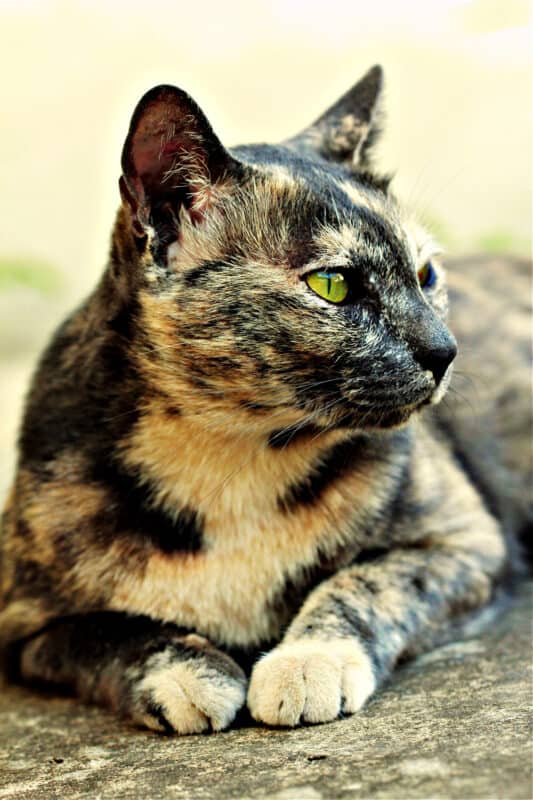
The Feral Cats In My Neighborhood are Too Thin! What Can I Do To Help Them?
Monitoring the health of feral cats is very hard unless you are able to contain them. Since this isn’t the case most of the time, it can be difficult to figure out how much the cat is eating, what they’re eating, and when they’re eating.
You also have no idea what they might be exposed to when they are no longer in your line of sight.
Feral cats are especially vulnerable to parasites. A parasitic infection saps the body of nutrients and makes it difficult, if not impossible, for a cat to gain the weight they need.
This is an issue that can only be addressed by a veterinarian. To get the feral cat to the vet, they will need to be trapped. You can recruit the help of a trapping service affiliated with your vet’s office or try your hand at it yourself.
The first thing you need to do for the feral cats in your neighborhood is to get them all spayed and/or neutered. If you're not sure how to do that, ask for help in our Caring for Ferals forum.
Aside from ensuring they get adequate vet care, you can leave food out for your neighborhood’s fixed feral felines. Put out a measured amount and check on the food (preferably a calorically dense formula) periodically to see how quickly it is being consumed.
Please make sure to spay and neuter the cats prior to feeding them. Feeding cats without fixing them means there will be more kittens to feed and care for sooner than you think. It's a recipe for disaster for the cats.
Can A Cat Gain Weight Too Quickly?
If your skinny kitty is packing on the pounds shortly after you make the changes to their lifestyle to facilitate weight gain, you might become worried that they’re gaining too quickly.
It can be quite alarming to see your cat graduate from skin and bones to a heftier weight in almost no time at all. That's usually ok. Many thin rescued cats gain weight fairly fast once treated for parasites and receive proper food.
Assuming this is a healthy cat that got the "all clear" from the vet and isn't showing any other symptoms - you shouldn't worry. Just make sure not to go overboard with nutrient-rich food and prevent Kitty from becoming overweight.
Is There Such A Thing As Over-Feeding A Sick Cat?
Food and hydration are essential to a cat’s wellness, including when they are sick. Starvation and dehydration will do a number on even the healthiest body, not to mention an ill one. Fortunately, there aren’t many conditions that could make “too many calories” a problem for your cat.
At this point, you have been in contact with your veterinarian regarding your cat’s health. He or she will be able to tell you if a gradual reduction of calories is necessary.
Your Vet Is An Essential Resource For You And Your Skinny Kitty
Becoming underweight and even malnourished can seriously compromise your cat’s health. Oftentimes, the underlying cause of weight loss is a medical problem that only a vet can address.
Don’t try to do it all on your own! No matter how good your intentions are, the wrong form of treatment could make a scary situation even worse.
After running the appropriate bloodwork and conducting the examinations necessary, your vet will be able to help you create a plan of action.
Their advice is the most valuable part of your cat’s treatment, so don’t be afraid to place your trust in your veterinarian. Your skinny kitty will thank you.
Reviving The Feline Spark: Ensuring Your Cat's Optimum Weight And Health
Conclusively, weight loss in cats, while sometimes disconcerting, can be managed with the right knowledge, practices, and professional guidance. It's essential to monitor your cat's weight closely and be observant of any sudden changes in their eating habits, behavior, or overall health.
Remember, while weight gain is the goal, it's the overall health and happiness of your feline friend that truly matters. Working hand-in-hand with your vet, you can bring back your cat's vivaciousness and ensure they live a long, fulfilling life.
For more tips on cat care and pet health, subscribe to our newsletter and stay connected. And remember, your cat's well-being starts with your attentiveness and ends with your action.
If you need more help in your journey to get your cat to a healthy weight, why not start a thread in the Cat Health Forum? Our members are there to offer help and support.
SIGN UP FOR THECATSITE'S EMAIL UPDATES >
While we'd love to see your comments, including your own stories about thin cats and how you helped them, please don't leave questions concerning a specific cat's condition here. Use the forums instead.
Note: We may get commissions for purchases made through links on this page.




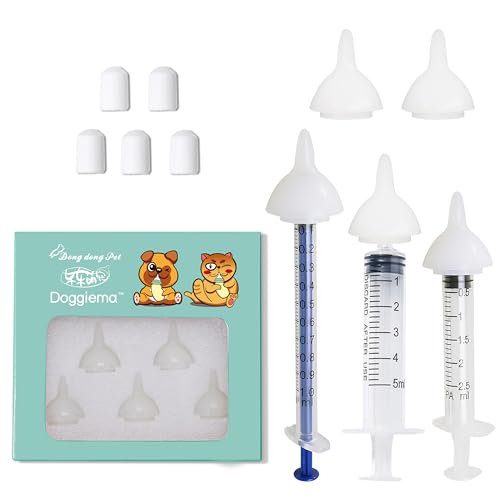
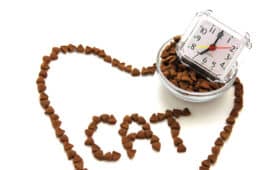
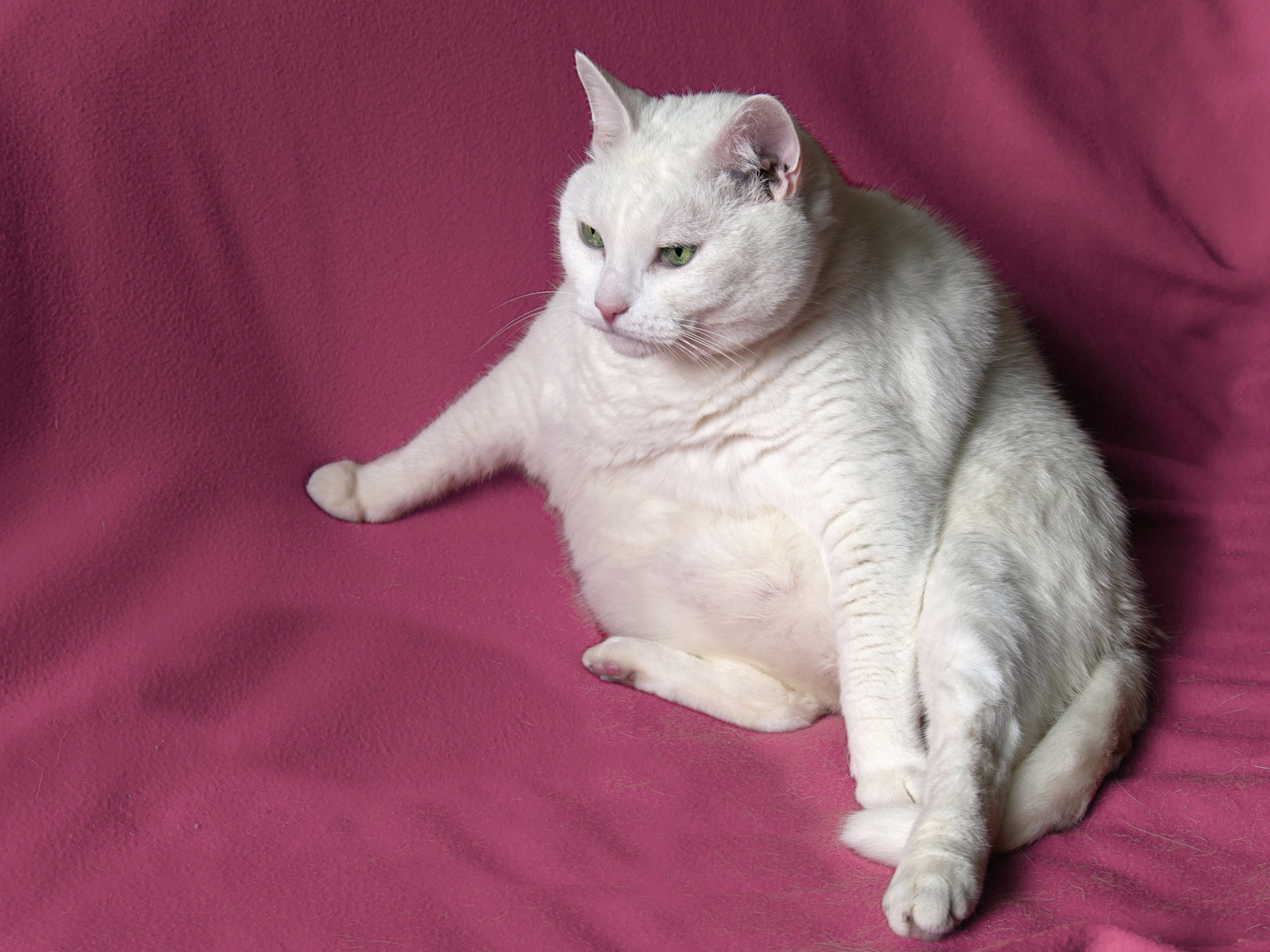
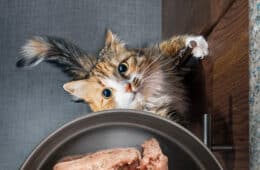
8 comments on “How To Get A Cat To Gain Weight – Expert Tips to Help Your Pet Thrive”